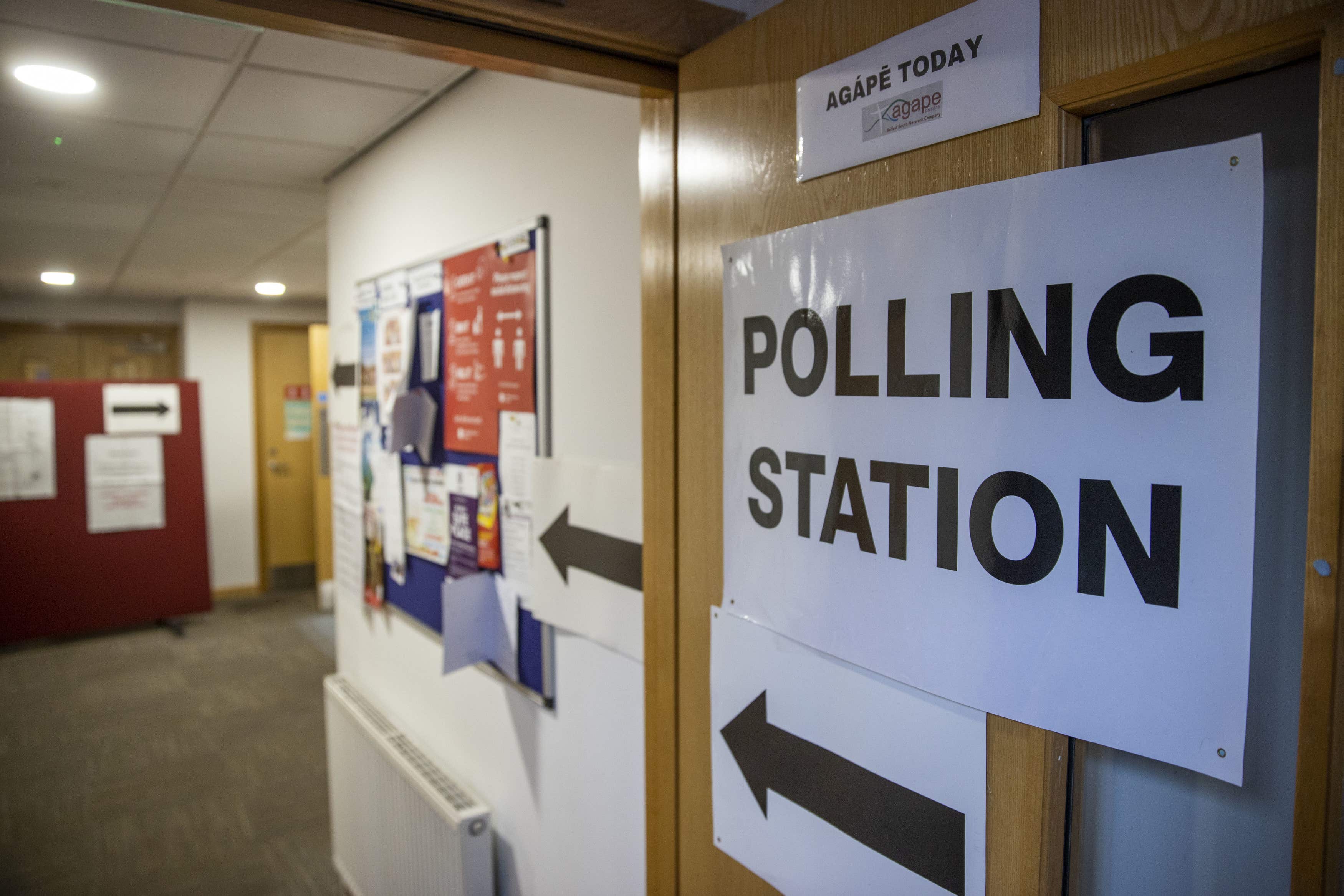Political leaders cast their ballots in local government elections
Voters will be electing 462 councillors across the 11 local councils in Northern Ireland.

Your support helps us to tell the story
From reproductive rights to climate change to Big Tech, The Independent is on the ground when the story is developing. Whether it's investigating the financials of Elon Musk's pro-Trump PAC or producing our latest documentary, 'The A Word', which shines a light on the American women fighting for reproductive rights, we know how important it is to parse out the facts from the messaging.
At such a critical moment in US history, we need reporters on the ground. Your donation allows us to keep sending journalists to speak to both sides of the story.
The Independent is trusted by Americans across the entire political spectrum. And unlike many other quality news outlets, we choose not to lock Americans out of our reporting and analysis with paywalls. We believe quality journalism should be available to everyone, paid for by those who can afford it.
Your support makes all the difference.Northern Ireland’s political leaders have cast their ballots in the local government elections.
Voters are electing 462 councillors across the 11 councils in Northern Ireland.
It is the first electoral test for the parties since last year’s Assembly elections and takes place against the backdrop of the Stormont stalemate, with the powersharing institutions not operating as part of a DUP protest against post-Brexit trading arrangements.
Among those who voted early was Sinn Fein vice-president Michelle O’Neill, who filled out her ballot paper at St Patrick’s primary school in her home village of Clonoe, Co Tyrone.
After voting, Ms O’Neill spoke to some of her party’s candidates in the area.
Naomi Long, leader of the Alliance Party, voted in east Belfast.
Ulster Unionist leader Doug Beattie voted in Craigavon and SDLP leader Colum Eastwood was accompanied by his two young daughters when he voted at a school in Londonderry.
DUP leader Sir Jeffrey Donaldson was last of the leaders of the larger parties to vote, casting his ballot in the afternoon at Dromore Central Primary School in Co Down.
Despite a dry and sunny start, early anecdotal evidence from count centres suggested a slow but steady stream of voters.
Mr Beattie said he thought more people would turn out to vote later in the day when they had finished work.
Among the voters at St Patrick’s Primary School in Clonoe were a part of a wedding party.
Blaine, Nicole, Johnny, Kevin and Pat Campbell arrived dressed for Pat’s nuptials to allow him to cast his vote just before his wedding.
The poll was pushed back by two weeks due to the coronation of the King on May 6.
It has been a low-key election campaign, largely overshadowed by the visit to Northern Ireland of US President Joe Biden, commemorations of the 25th anniversary of the Good Friday Agreement and the coronation.
The 11 local councils are responsible for a number of services, including waste collection, street cleaning, local planning, leisure services and parks.
However, the elections may come to be seen as a measure of public feeling on larger political issues such as the ongoing suspension of powersharing and a budget crisis facing Stormont departments.
Sinn Fein, which currently has 105 councillors, is hoping to emulate last May’s Assembly election result and emerge as the largest party.
The republican party is fielding 162 candidates and has predicted it could make gains in areas where it has not previously had an elected representative.
The DUP is currently the largest party in local government with 122 councillors.
The unionist party is running 152 candidates this time.
Party leader Sir Jeffrey Donaldson has pledged that his party will stand firm over any return to Stormont until political and trading concerns around the Windsor Framework are addressed.
The cross-community Alliance Party made the largest gains in last year’s Assembly elections and will be hoping to increase the 53 councillors it currently has.
Alliance is running 110 candidates across the 11 council areas.
The Ulster Unionist Party is running 101 candidates. It suffered losses in both the last Assembly and local government elections. It currently has 75 councillors.
The nationalist SDLP has similarly seen its vote squeezed in recent elections. It has 59 councillors and is running 86 candidates.
The TUV has 46 candidates, the Green Party has 37, Aontu has 19 and People Before Profit has 16.
A number of smaller parties and independent candidates will also contest the election.
Belfast City Council is the largest local government area in Northern Ireland with 60 councillors to be elected.
No party has overall control but Sinn Fein is currently the largest party in Belfast City Hall.
Voters have been reminded to bring photographic ID to the polling station to enable them to vote.
The elections use the single transferable vote system where voters rank candidates in order of preference.
Counting across 11 sites will begin on Friday and is expected to continue into Saturday.